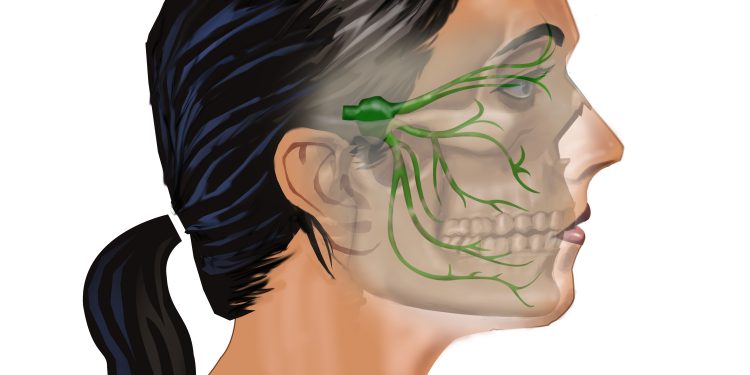by Sharik Peck, PT
Persistent debilitating headaches are a frequent complaint from those who have experienced a brain injury or concussion. The fastest way to turn off a headache is by balancing the brain.
What does that mean? First, you need to understand a few basics about the nervous system, such as how pain and anxiety work in the body. Once these key concepts are understood, you can minimize pain, shut down fear responses, and decrease inflammation. The complex interaction between the vagus and trigeminal nerves is becoming clearer because of extensive research highlighting their connections. The connection between the vagus and trigeminal nerves affects pain and unhealthy emotions associated with headaches such as anger, fear, anxiety, and inflammation. Let’s start by looking at the vagus nerve.
Major Roles of the Vagus Nerve
The vagus nerve is responsible for many things, including heart rate, gastrointestinal function, sweat, many muscle movements in the mouth, and speech (via the recurrent laryngeal branch of the vagus nerve). When the vagus nerve is functioning properly, the gag reflex is diminished and the stomach, heart rate, and breathing are calm. In addition to monitoring/regulating heart functions, the vagus nerve plays a major role in decreasing inflammation and stimulating secretion of calming neurotransmittersa key element in calming your heart and your headache.
Major Roles of the Trigeminal Nerve
According to Gray’s Anatomy (the prestigious anatomy reference book, not to be mistaken with “Grey’s Anatomy” the television drama), the trigeminal nerve is the largest cranial nerve. It carries sensory input from the face, the greater part of the scalp, the teeth, the mouth, and the nose. It is the motor supply to the masticatory and other facial muscles. It contains proprioceptive nerve fibers from the chewing muscles and eye muscles and contains connections to the vagus nerve through the main sensory nucleus. Here is where it gets fun. Chewing and clenching reflexes, managed by the trigeminal nerve system, play a major role in firing up the “fight or flight,” or sympathetic state of the nervous system–the stress state of the body! Hence, the trigeminal nerve is a major contributor to headaches, shutting down the many health benefits of the vagus nerve.
Here is the question: “What if you could “tune out” by calming down the trigeminal nerve and enhancing the functioning of the vagus nerve, thus decreasing pain and inflammation, as well as those unhealthy emotions associated with headaches?
You can calm down the trigeminal fight-or-flight response with direct application of resonance (carefully calibrated vibration) to key points on the head and face. This is possible through the interaction of the cranial nerves, especially the trigeminal and vagus nerves with their strong roles in the central nervous system. In other words, vibration on key points calms the nervous system and turns off headaches while helping the nervous system balance the “fight or flight” and the “rest and digest” functions of the brain.
Three simple techniques have been shown to reduce jaw tension by 50 percent in just three minutes. To magnify that effect and teach your brain how to easily find that calm state, directly engage the vagus nerve by applying resonance.
How do you do that? After much research, design, and development, we invented the Ressimax Tuner Pro to deliver precise resonance that will calm the trigeminal nerve and enhance the benefits of the vagus nerve.
Recently, an individual suffering from cluster headaches sent me this message: “It’s been five days so far that my cluster headaches have been gone. God bless you guys! Since I got the Rezzimax Pain Tuner Pro, I have not had a single cluster headache. I was absolutely debilitated for the past three weeks and didn’t know where to turn. I am so grateful I found you guys. Thank you so much!!”
It is all possible because of the miracle of resonance and its effects on the vagus and trigeminal nerves.
Sharik is the CEO of Rezzimax, LLC. He suffered his first major TBI at the age of 17, suffering a sports-related hemorrhagic stroke. He later received a bachelor’s degree in physical therapy from the University of Utah and a master’s degree in counseling from Utah State University. He is passionate about pain relief and determining how the nervous system works, as well as humanitarian efforts to relieve suffering.
Receive 30% off your Rezzimax Pain Tuner Pro with discount code: TBI
www.rezzimax.com











